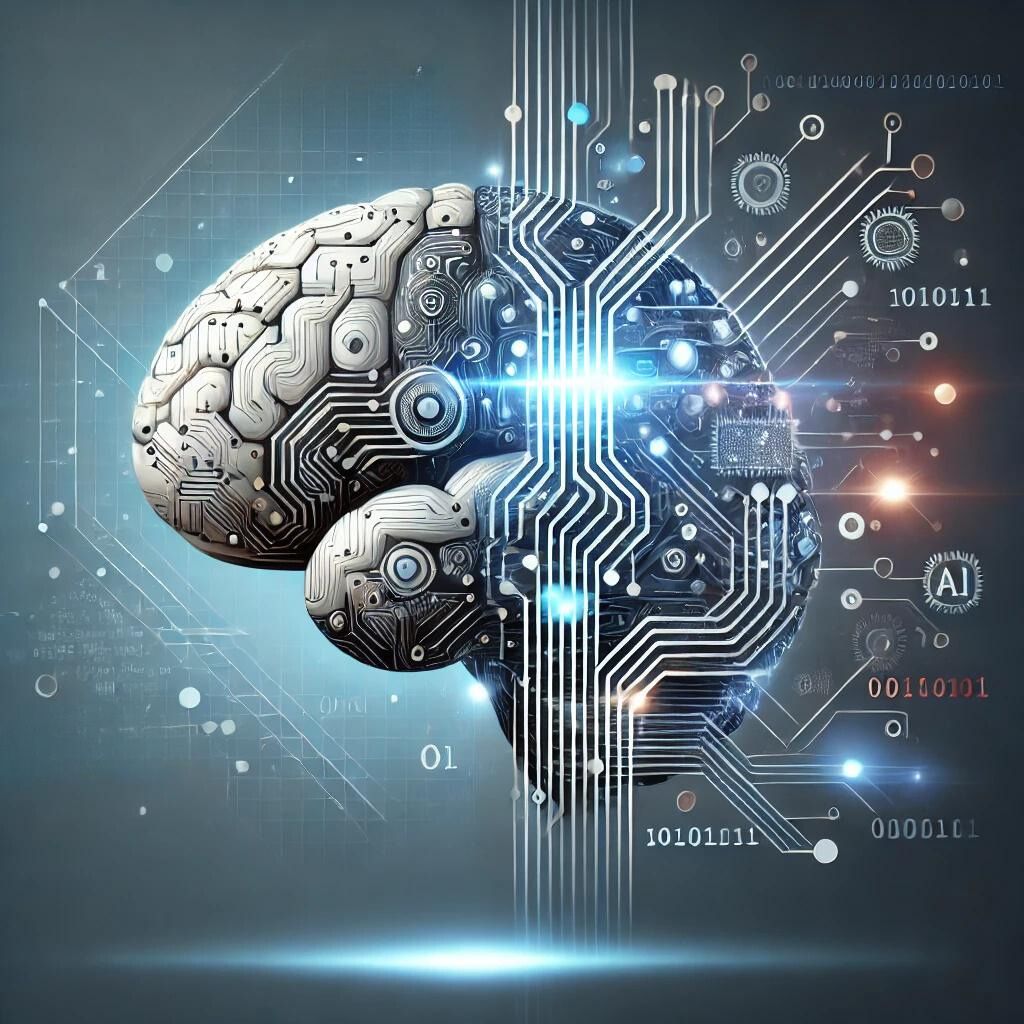Understanding Artificial Intelligence and Its Relevance Today
In recent years, the term “Artificial Intelligence” (AI) has transitioned from the realm of science fiction into a tangible and transformative technology that is reshaping various aspects of our daily lives. From virtual assistants like Siri and Alexa to complex systems like self-driving cars, AI is no longer just a futuristic concept—it’s a powerful tool that is already here, making a significant impact on society. One of the most notable advancements in AI has been the development of sophisticated language models like ChatGPT, which are revolutionizing the way we interact with technology. But what exactly is AI, and why does it matter today?

What is Artificial Intelligence?
At its core, Artificial Intelligence refers to the simulation of human intelligence in machines. These machines are programmed to mimic cognitive functions such as learning, problem-solving, perception, and decision-making. AI systems can be broadly categorized into two types: narrow AI and general AI.
-
Narrow AI is designed to perform specific tasks, such as facial recognition, language translation, or playing a game of chess. These systems operate within a limited context and do not possess the ability to generalize knowledge across different domains. For instance, a language model like ChatGPT can generate human-like text based on the input it receives but cannot perform tasks outside its language processing capabilities.
-
General AI, on the other hand, refers to a more advanced form of AI that can understand, learn, and apply knowledge across a wide range of tasks, much like a human. While we are still far from achieving true general AI, ongoing research and development continue to push the boundaries of what AI systems can do.
Why Does AI Matter Today?
AI is more than just a technological marvel; it has become a crucial part of the modern world, influencing various sectors and industries. Here are a few reasons why AI matters today:
Enhanced Productivity and Efficiency
- AI-driven automation has the potential to significantly boost productivity by taking over repetitive and mundane tasks. In industries like manufacturing, healthcare, and finance, AI systems can streamline processes, reduce errors, and enable human workers to focus on more complex and creative tasks.
Improved Decision Making
-
AI systems can analyze vast amounts of data at speeds that far exceed human capabilities. This ability to process and interpret data enables businesses and organizations to make informed decisions based on real-time insights. For example, AI algorithms can predict market trends, optimize supply chains, and even assist in medical diagnoses.
-
Personalized Experiences AI has transformed the way we experience digital content. From personalized recommendations on streaming platforms like Netflix to targeted advertisements on social media, AI algorithms analyze user behavior to deliver content that aligns with individual preferences. This level of personalization enhances user satisfaction and engagement.
-
Innovations in Human-Computer Interaction The development of natural language processing (NLP) models like ChatGPT has revolutionized the way humans interact with machines. These AI-powered systems can understand and generate human language, making it easier for people to communicate with technology. Whether it’s answering customer queries, providing technical support, or generating creative content, language models are becoming integral to various applications.
Ethical and Societal Considerations
As AI becomes more prevalent, it also raises important ethical and societal questions. Issues related to privacy, data security, and algorithmic bias are critical considerations that need to be addressed. The development and deployment of AI technologies require careful regulation and oversight to ensure that they are used responsibly and ethically.
The Role of ChatGPT and Similar Tools
ChatGPT, a language model developed by OpenAI, exemplifies the advancements in AI that are shaping our interactions with technology. This tool can generate coherent and contextually relevant responses, making it valuable for tasks like drafting emails, creating content, and even engaging in casual conversation. The accessibility and versatility of such tools make them indispensable in various fields, including customer service, education, and content creation.
However, the rise of tools like ChatGPT also underscores the importance of understanding the limitations and ethical implications of AI. While these models can simulate human-like conversations, they lack true understanding and empathy. It’s crucial for users to be aware of these limitations and use AI responsibly.
Conclusion
Artificial Intelligence is a transformative force that is reshaping the world in profound ways. From enhancing productivity and decision-making to offering personalized experiences, AI has become an integral part of our lives. As we continue to innovate and develop new AI technologies, it’s essential to consider the ethical and societal implications, ensuring that these advancements benefit humanity as a whole. With tools like ChatGPT leading the way, the future of AI promises to be both exciting and challenging, offering new possibilities and responsibilities.
Here are some excellent resources to learn more about artificial intelligence:
-
Coursera: AI For Everyone by Andrew Ng A beginner-friendly course that provides a broad understanding of AI concepts and their impact on various industries.
-
edX: Introduction to Artificial Intelligence (AI) Offered by Harvard University, this course covers the fundamentals of AI, including machine learning, neural networks, and natural language processing.
-
DeepLearning.AI A platform offering a variety of courses on deep learning, machine learning, and AI, including the popular “Deep Learning Specialization” on Coursera.
-
Fast.ai Provides practical and hands-on courses in deep learning, making it accessible even for beginners with no prior experience.
-
OpenAI Blog Offers insights into the latest research and developments in AI, including articles on the technology behind tools like ChatGPT.
-
Kaggle Learn A great platform for learning data science and machine learning through hands-on tutorials and competitions.
-
MIT OpenCourseWare: Artificial Intelligence Access free course materials from MIT, covering a wide range of AI topics.